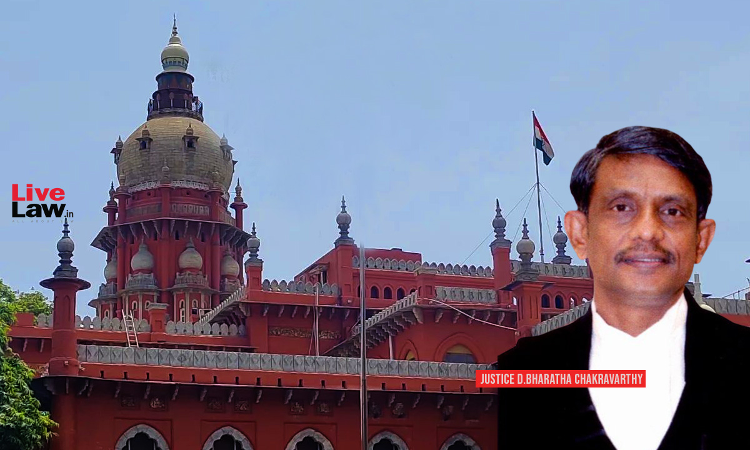- Home
- /
- High Courts
- /
- Madras High Court
- /
- “Unique Circumstances”: Madras High...
“Unique Circumstances”: Madras High Court Asks Centre To Consider Citizenship Plea Of Woman Born To Srilankan Refugees In India
Upasana Sajeev
2 April 2025 3:25 PM IST
The Madras High Court has asked the Union Government to consider the citizenship application of a woman, born in 1987 to a Sri Lankan couple settled in India, without insisting she return to Sri Lanka and come back to India with a visa. Noting that it was a unique case, Justice Bharatha Chakravarthy held that though the applicant could be considered a foreigner, she had not entered...
The Madras High Court has asked the Union Government to consider the citizenship application of a woman, born in 1987 to a Sri Lankan couple settled in India, without insisting she return to Sri Lanka and come back to India with a visa.
Noting that it was a unique case, Justice Bharatha Chakravarthy held that though the applicant could be considered a foreigner, she had not entered India without valid documents as she was born in the country. The court thus asked the authorities to take into account all parameters required under the Citizenship Act for granting citizenship without insisting on the sole requirement of returning to Sri Lanka and re-entering India as a legal migrant.
The court also noted that the applicant could not be considered an illegal migrant as an illegal migrant was a foreigner who had entered India without a valid passport and travel documents. The court noted that in the present case, the applicant had been under the impression that she was an Indian citizen, had an Indian passport and all relevant documents. The court also noted that the applicant never held a Sri Lankan passport or any document indicating she was a citizen of that country.
“Therefore, given the unique facts and circumstances of the case, for the consideration of the petitioner's application on its own merits, while the authorities can take into account all other parameters required under the Citizenship Act for granting citizenship, the sole requirement for her to return to Sri Lanka and re-enter India as a legal migrant need not be considered, because the restriction applies only to illegal migrants,” the court said.
The court was hearing an application filed by S Ramya for directing the Central Government and the Foreigners Regional Registration Office to consider her application. The court was informed that Ramya's parents had travelled to India from Sri Lanka in 1984 and continued to reside here. Since Ramya's grandfather was an Indian, the couple chose India as their destination to flee Sri Lanka during the civil war. Ramya's parents were given refugee status and stayed in India through various permits and restrictions which were periodically issued by the Foreigners Regional Registration Office in Chennai.
It was submitted that when Ramya was born in 1987, her birth was registered with the Coimbatore City Municipal Corporation, and she was issued a birth certificate treating her as an Indian citizen. The court was also informed that Ramya held all identity cards that were typically issued to citizens of India, including a voter ID card and a passport. It was submitted that Ramya completed her education in India, worked in India, married an Indian citizen in 2014, and had a son who was also a citizen of India. However, when Ramya's parents approached the authorities for renewing their registration, the authorities noticed that Ramya could not be an Indian citizen as per the Citizenship Act as neither of her parents was an Indian citizen at the time of her birth.
It was submitted that though she tried to submit an application for citizenship, the online portal did not accept her application due to peculiar facts. She argued that since her birth occurred five months after the cut off date, she was still eligible for citizenship under Section 5(i)(c) of the Act. it was also submitted that as per the Act, if a person married a citizen of India and ordinarily resided in India for 7 years as on date of application, her application could be considered.
The court noted that the authorities had been insisting that Ramya return to Sri Lanka and come back to India as a legal entrant after obtaining an Indian visa since citizenship under the Act could be granted only to a person who was not an 'illegal migrant'.
However, in the present case, the court noted that Ramya could not be considered an illegal migrant. Thus, considering it as a unique case, the court asked the authorities to consider the case on its own merits.
Counsel for Petitioner: Mr. S. Ilamuhil
Counsel for Respondents: Mr. Rabu Manohar, Mr. V. Manoharan, Additional Government Pleader,
Case Title: S Ramya v. The Union of India and Others
Citation: 2025 LiveLaw (Mad) 125
Case No: W.P.No.5611 of 2025



